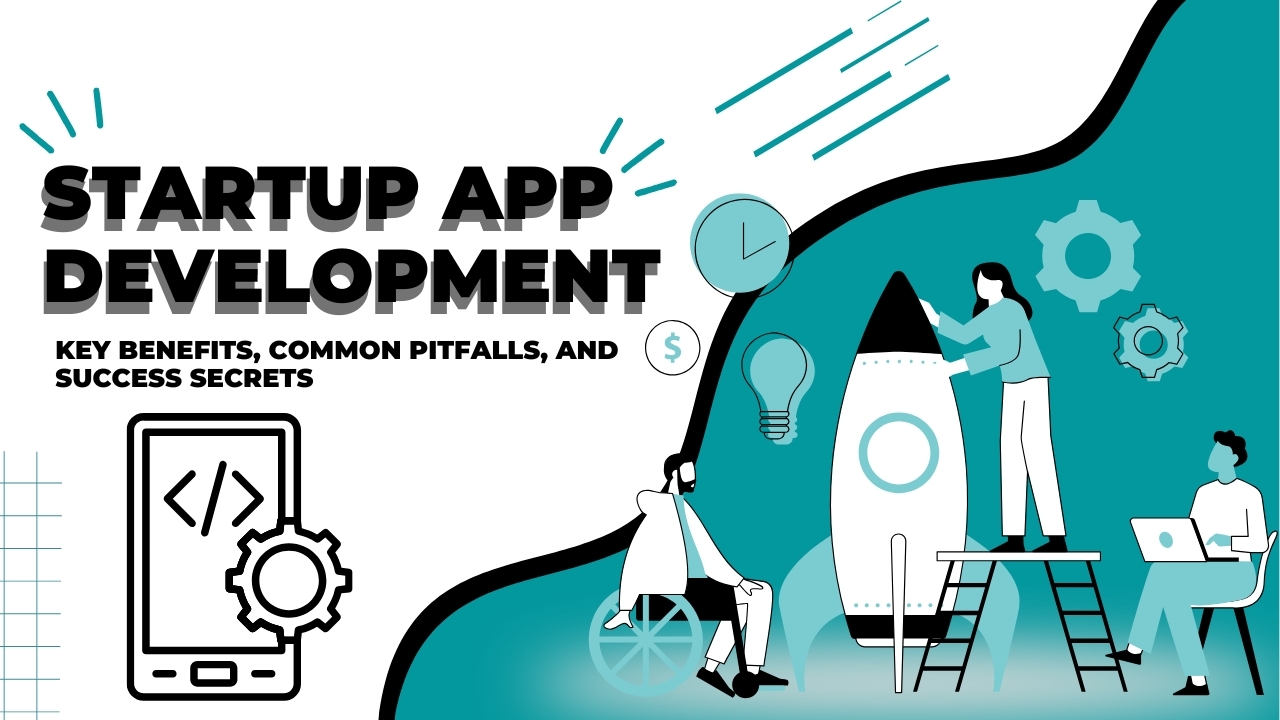
Building an app as a startup is exciting, risky, and often a make, or break move. With users increasingly mobile, first, an app isn’t just a feature; it’s the product, the storefront, and the brand itself. But before diving in, founders need more than just an idea.
They need a roadmap that covers the real benefits, exposes the common traps, and reveals what actually sets successful startup apps apart.
Let’s break it down.
Why Build an App for Your Startup?
For most startups, apps aren’t optional; they're central to growth and traction. Here’s why:
1. Direct Access to Users
Mobile apps keep your brand just a tap away. That kind of proximity builds habit, loyalty, and daily use—something websites often struggle to match.
2. Better Engagement & Retention
Apps allow for push notifications, offline access, deep linking, and smoother UX. When done right, these features drive repeat sessions and customer lifetime value.
3. Data Collection for Smarter Growth
Apps are a goldmine for user behavior insights. You get detailed data on usage, navigation paths, conversion blockers, and retention trends—all of which fuel better decisions.
4. Stronger Brand Presence
Having an app on the App Store or Play Store instantly adds credibility. For many users, the presence of an app is the difference between “new startup” and “real business.”
Key Benefits of Startup App Development

So, what do startups actually gain when they go all-in on app development?
Speed to Market: With lean MVP approaches, startups can launch faster than ever—often within weeks—and iterate in real time.
Scalable Infrastructure: Cloud, native tech stacks make it easy to scale features and user base without rewriting your entire backend.
Flexible Revenue Streams: In-app purchases, subscriptions, ads, and affiliate integrations open multiple monetization pathways.
Investor Attention: A functional, user-centric app shows traction and product-market fit, making it easier to secure funding.
When strategically executed, Startup App Development can be the most efficient way to test an idea, reach early users, and scale globally.
Common Pitfalls to Avoid
Not every startup app becomes the next breakout success. In fact, many fail early due to avoidable mistakes. Here's what to watch out for:
1. Overbuilding in the First Release
Trying to launch with every possible feature kills timelines and budgets. Instead, focus on your MVP—the minimum viable product—and validate it before scaling.
2. Ignoring the Market Fit
Too many startups build the app they want instead of what users need. Without real user research and early feedback loops, development becomes a gamble.
3. Poor UX/UI Design
No matter how powerful your backend is, users judge your app by its interface. Clunky navigation, inconsistent layouts, or slow response times will push users away.
4. Skipping Beta Testing
Launching without user testing is like flying blind. It’s essential to test performance, usability, and bugs across devices and use cases before going live.
5. Choosing the Wrong Tech Stack
Selecting tools based on trends, not needs, can lead to rework later. You need a stack that fits your vision, timelines, and future scale.
6. Neglecting Maintenance
An app isn’t a one-time build. Skipping updates, bug fixes, or new features can result in negative reviews and app store invisibility over time.

Secrets to Startup App Success
There’s no cheat code, but successful startups tend to do a few things differently:
1. Build Around One Core Problem
Apps that try to solve too much often end up solving nothing. Zero in on one specific user pain point and do it better than anyone else.
2. Keep Feedback Loops Tight
Early adopters are gold—use their feedback to improve quickly. In,app surveys, usage analytics, and session recordings all help shape smarter updates.
3. Go Native When It Matters
While cross-platform development is tempting for speed, native apps often provide better performance and deeper OS integrations—critical for certain industries or features.
4. Launch Fast, Learn Faster
Don’t wait for perfect. Get a version out, track how it performs, and evolve it. Speed beats perfection in most startup environments.
5. Think Beyond Code
Your app is also your brand, your funnel, your support system, and your community. Invest in onboarding flows, customer support tools, and retention strategies.
Choosing the Right Partner: Why It Matters
Building an app with an in-house team may not always be viable for startups. That’s where hiring the right development partner becomes a strategic decision.
A reliable Startup App Development Company will do more than just write code. They’ll bring experience across industries, anticipate pitfalls, and help shape your MVP for market readiness. Look for a team that understands both technology and startups—because you're not just building an app, you’re launching a business.
How Much Does Startup App Development Cost?
App development costs vary wildly depending on features, platform, team location, and more. That said, here’s a rough breakdown:
Basic MVP (Single Platform): $15,000 – $35,000 (Estimated Cost Range)
Mid-Level App: $40,000 – $80,000 (Estimated Cost Range)
Advanced Scalable Product: $100,000+ (Estimated Cost Range)
These figures include UI/UX design, frontend/backend development, QA, and project management.
To reduce cost:
Start with MVP only
Use open, source, or prebuilt modules
Prioritize core flows and scale features later
Choose a partner offering the Best Startup App Development Services within your region or niche
Final Thoughts
App development for startups isn’t just about writing clean code—it’s about solving the right problem for the right audience at the right time. Whether you're bootstrapping or VC-backed, your first version needs to be lean, user-focused, and fast to market.
Avoid the common traps, stay obsessed with user value, and partner with people who understand your startup mindset. That’s how apps evolve into products—and products into businesses.
If you're planning your own app journey, now is the time to move from idea to execution with the right strategy in place.
